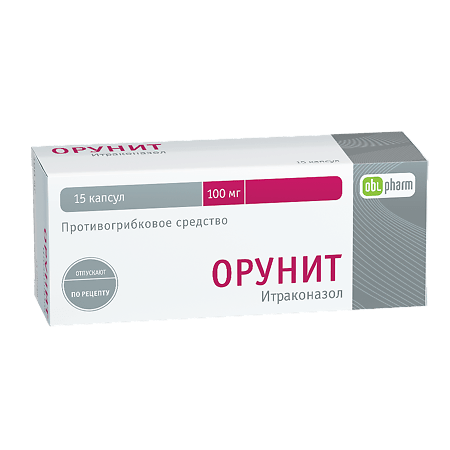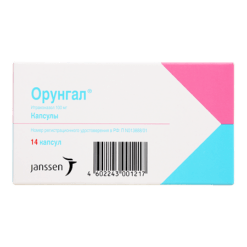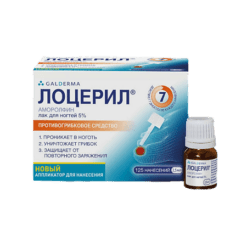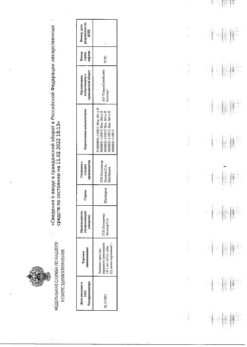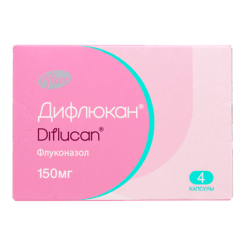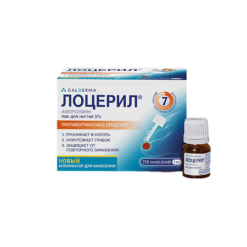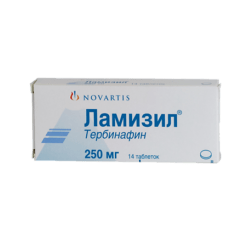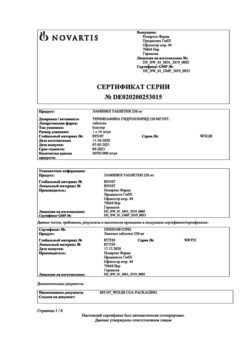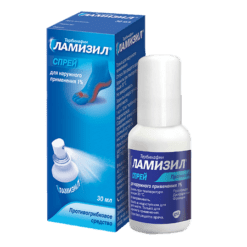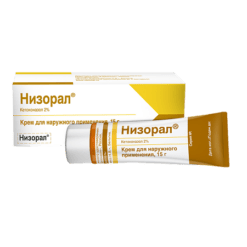No products in the cart.
Orunit, capsules 100 mg 15 pcs
€1.00
Out of stock
(E-mail when Stock is available)
Description
A broad spectrum antifungal agent, a triazole derivative. Inhibits ergosterol synthesis of the cell membrane of fungi.
It is active against dermatophytes (Trichophyton spp., Microsporum spp, Epidermophyton floccosum), yeast fungi Candida spp. (including Candida albicans, Candida glabrata, Candida krusei), molds (Cryptococcus neoformans, Aspergillus spp, Histoplasma spp., Paracoccidioides brasiliensis, Sporothrix schenckii, Fonsecaea spp., Cladosporium spp., Blastomyces dermatidis).
Indications
Indications
Dermatomycoses;
Fungal keratitis;
Onychomycosis caused by dermatophytes and/or yeasts and molds;
Systemic mycoses, including systemic aspergillosis and candidiasis, cryptococcosis (including cryptococcal meningitis), histoplasmosis, sporotrichosis, paracoccidioidomycosis, blastomycosis;
Candidomycosis with damage to the skin and mucous membranes, incl. vulvovaginal candidiasis;
Visceral candidiasis;
Pityriasis versicolor.
Pharmacological effect
Pharmacological effect
Broad-spectrum antifungal drug, triazole derivative. Inhibits the synthesis of ergosterol in the cell membrane of fungi.
Active against dermatophytes (Trichophyton spp., Microsporum spp., Epidermophyton floccosum), yeast fungi Candida spp. (including Candida albicans, Candida glabrata, Candida krusei), molds (Cryptococcus neoformans, Aspergillus spp., Histoplasma spp., Paracoccidioides brasiliensis, Sporothrix schenckii, Fonsecaea spp., Cladosporium spp., Blastomyces dermatidis).
Special instructions
Special instructions
Itraconazole has a negative inotropic effect. Considering this, Orunit should not be prescribed to patients with chronic heart failure (including a history) unless the expected benefit of therapy significantly outweighs the potential risk. In this case, factors such as the severity of the indications, dosage regimen and individual risk factors for the development of chronic heart failure (including the presence of coronary artery disease, heart valve damage, COPD, renal failure) should be taken into account.
With reduced gastric acidity, the absorption of itraconazole is impaired. Patients receiving antacid drugs (for example, aluminum hydroxide) are recommended to take them no earlier than 2 hours after taking Irunin. Patients with achlorhydria or using histamine H2 receptor blockers or proton pump inhibitors are recommended to take Orunit capsules with cola.
In very rare cases, when using itraconazole, severe toxic liver damage developed, incl. cases of acute liver failure with fatal outcome. In most cases, this was observed in patients who already had liver disease, as well as in patients receiving other drugs that have hepatotoxic effects. Therefore, it is recommended to regularly monitor liver function in patients receiving itraconazole therapy.
In the event of symptoms suggesting the development of hepatitis, incl. anorexia, nausea, vomiting, weakness, abdominal pain and dark urine, you must immediately stop taking the drug and conduct a liver function test. Patients with elevated liver enzyme levels or active liver disease should not be treated with Orunit unless the expected benefit justifies the risk of liver damage. In these cases, it is necessary to monitor the level of liver enzymes during treatment.
If neuropathy develops, which may be caused by oral itraconazole, treatment should be discontinued.
There is no evidence of cross-hypersensitivity to itraconazole and other azole derivative antifungals. Orunit capsules should be administered with caution to patients with hypersensitivity to other azoles.
Active ingredient
Active ingredient
Itraconazole
Composition
Composition
One capsule contains
Active substances:
Itraconazole – 100 mg (in pellet form 22%)
Excipients:
Sugar granules,
methyl copolymer,
dimethylaminoethyl and butyl methacrylate (Eudragit E-100),
hydroxypropyl methylcellulose,
polyethylene glycol.
Composition of the capsule shell:
Quinoline gelatin (E 104),
patented blue V (E 131),
brilliant black (E 151),
titanium dioxide (E 171),
iron oxide yellow (E 172),
gelatin,
orange yellow (E 110).
Contraindications
Contraindications
Hypersensitivity to the components of the drug.
Side Effects
Side Effects
From the digestive system: often – dyspepsia, nausea, abdominal pain, constipation; possible anorexia, reversible increase in liver enzyme activity, cholestatic jaundice, hepatitis; in some cases – toxic liver damage, incl. a case of acute liver failure with a fatal outcome.
From the central nervous system and peripheral nervous system: possible headache, fatigue, dizziness, peripheral neuropathy.
From the reproductive system: menstrual irregularities are possible.
From the urinary system: hypercreatininemia, dark colored urine.
Metabolism: edema, hyperkalemia.
From the cardiovascular system: chronic heart failure and pulmonary edema are possible.
Allergic reactions: possible itching, rash, urticaria, angioedema, Stevens-Johnson syndrome.
Dermatological reactions: alopecia is possible.
Interaction
Interaction
Concomitant use with rifampicin, rifabutin and phenytoin, which are strong inducers of microsomal liver enzymes, is not recommended, because these drugs may significantly reduce the bioavailability of itraconazole and hydroxyitraconazole, resulting in a significant reduction in the effectiveness of the drug.
Studies on the interaction of itraconazole with other liver enzyme inducers, such as carbamazepine, phenobarbital and isoniazid, have not been conducted, but a similar effect can be expected.
Because itraconazole is primarily metabolized by the cytochrome P450 isoenzyme CYP3A4; strong inhibitors of this enzyme (including ritonavir, indinavir, clarithromycin and erythromycin) may increase the bioavailability of itraconazole.
Itraconazole may inhibit the metabolism of drugs that are biotransformed with the participation of the CYP3A4 isoenzyme. The result of this may be an intensification or prolongation of their action, incl. and side effects. After discontinuation of treatment, itraconazole plasma concentrations decrease gradually depending on the dose and duration of treatment.
Terfenadine, astemizole, mizolastine, cisapride, triazolam, midazolam (orally), dofetilide, quinidine, pimozide, metabolized by the CYP3A4 isoenzyme, HMG-CoA reductase inhibitors (simvastatin and lovastatin) should not be prescribed simultaneously with itraconazole.
Calcium channel blockers have a negative inotropic effect that may enhance this effect of itraconazole; itraconazole may reduce the metabolism of calcium channel blockers. Caution should be used when itraconazole is used concomitantly with calcium channel blockers.
Drugs that require monitoring of plasma concentrations: oral anticoagulants; HIV protease inhibitors (ritonavir, indinavir, saquinavir); some antitumor drugs (vinca rosea alkaloids, busulfan, docetaxel, trimetrexate); calcium channel blockers metabolized with the participation of the CYP3A4 isoenzyme (dihydropyridine and verapamil); some immunosuppressants (cyclosporine, tacrolimus, sirolimus); other drugs – digoxin, carbamazepine, buspirone, alfentanil, alprazolam, brotizolam, rifabutin, methylprednisolone, ebastine, reboxetine.
When used concomitantly with itraconazole, the dose of these drugs should be reduced if necessary.
No interaction was found between itraconazole and zidovudine and fluvastatin.
There was no effect of itraconazole on the metabolism of ethinyl estradiol and norethisetron.
In vitro studies have demonstrated that there is no interaction between itraconazole and drugs such as imipramine, propranolol, diazepam, cimetidine, indomethacin, tolbutamide and sulfamethazine when bound to plasma proteins.
Overdose
Overdose
There is no data on drug overdose.
Treatment: in case of accidental overdose, gastric lavage should be done within the first hour after taking the drug, and, if necessary, activated charcoal should be prescribed.
Symptomatic and supportive therapy is indicated.
Itraconazole is not eliminated by hemodialysis.
A specific antidote is not known.
Manufacturer
Manufacturer
Obolenskoye FP JSC, Russia
Additional information
| Manufacturer | Obolenskoe FP JSC, Russia |
|---|---|
| Medication form | capsules |
| Brand | Obolenskoe FP JSC |
Related products
Buy Orunit, capsules 100 mg 15 pcs with delivery to USA, UK, Europe and over 120 other countries.

